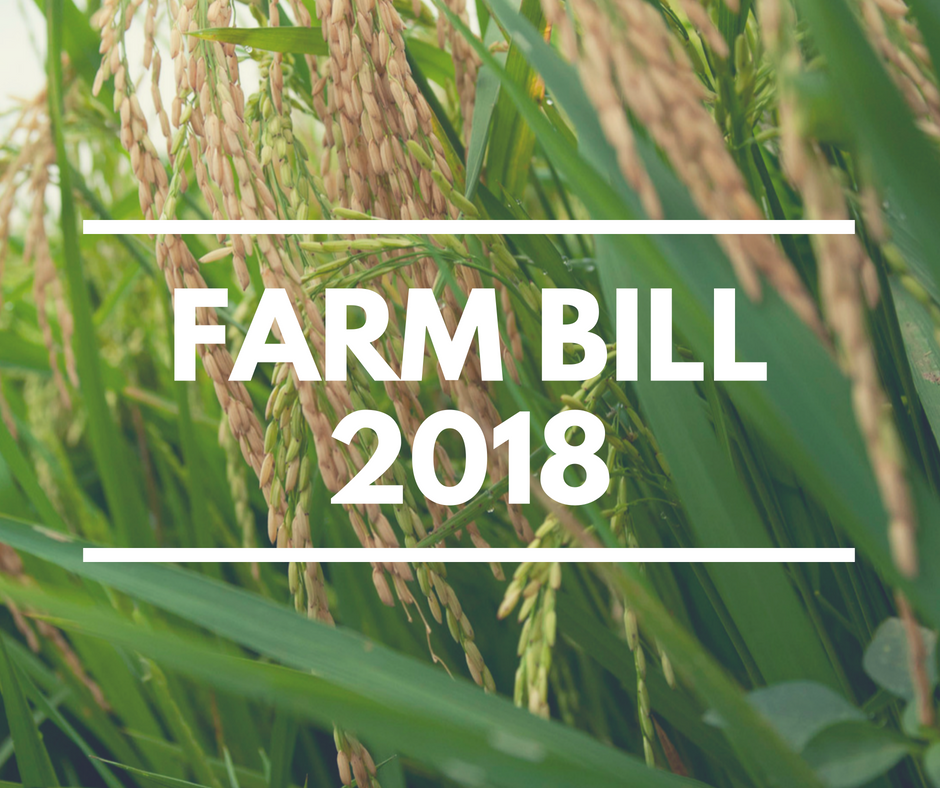
Jun 14, 2018
WASHINGTON, DC -- The Senate Committee on Agriculture, Nutrition, and Forestry held the markup for its version of the Farm Bill, The Agriculture Improvement Act of 2018 (S. 3042), yesterday. Nearly 200 amendments were filed, but only a handful received consideration during the hearing. Of those amendments considered, 66 were included and passed as an en bloc manager’s amendment. Several “messaging amendments,” or signals to Committee leadership of either displeasure for the lack of inclusion of proposed provisions or the request for an item to be considered at a later time by the Committee or on the Senate floor, were proposed but withdrawn. Those amendments receiving discussion and an affirmative vote by the Committee aren’t considered detrimental to rice interests. After just three hours of discussion, the committee passed the bill by a roll call vote of 20-1, with only Senator Chuck Grassley (R-IA) voting nay.
“USA Rice commends Senate Agriculture Chairman Pat Roberts and Ranking Member Debbie Stabenow for their efforts in moving the farm bill out of committee,” said Joe Mencer, Arkansas rice farmer and chairman of USA Rice Farmers. “We’re hopeful that both chambers can complete their work and conference a bill that will provide certainty to the rice industry in the current farm economy.”
Overall, the bill preserves the core structure of commodity support programs. The Price Loss Coverage (PLC) program’s operating structure will be maintained as-is; however, to make tweaks to the Agriculture Risk Coverage (ARC) program, the bill tightens means testing to qualify for commodity support and conservation programs by lowering the adjusted gross income (AGI) cap from $900,000 to $700,000.
The conservation title of the bill received no cuts to the overall funding baseline, but changes were made to several programs that reflect “marker bills” introduced throughout the 115th Congress. Most notably for the rice industry is additional funding for the Regional Conservation Partnership Program (RCPP), but funding for working lands programs, the Conservation Stewardship Program (CSP) and the Environmental Quality Incentives Program (EQIP), was reduced in part to pay for RCPP and the Agricultural Conservation Easement Program (ACEP).
The largest conservation program, the Conservation Reserve Program (CRP), received a one million acre increase in its acreage cap to 25 million acres.
Other prominent pieces of the Committee-passed bill include changes to the trade title, specifically food aid programs, the inclusion of an amendment directing the Federal Crop Insurance Corporation to conduct research and development on alternate wetting and drying and furrow irrigated rice practices, and a provision that will require the revision of USDA and the Department of Interior’s regulations clarifying that certain practices for rice producers, when carried out as part of a normal agricultural operation, do not constitute baiting of Migratory Game Birds.
In regard to food aid program changes, the bill proposes what could become substantial changes over time by shifting a large amount of program funding toward cash in lieu of commodities and allowing for the use of commodities to be sourced from foreign countries. USA Rice will be advocating for the elimination of these harmful changes in hopes the Senate will understand how critical these programs are to spreading the global good will of our nation through the distribution of American grown products, sent in bags branded as “from the American people.”
“I want to thank the members of the USA Rice Farm Policy Task Force for their diligent and devoted work so far in this process,” said Blake Gerard, Missouri rice farmer and chairman of the USA Rice Farm Policy Task Force. “The policies that were developed and defined by our task force are instrumental as we continue to advocate for the rice industry’s farm bill priorities.”
Senate Majority Leader Mitch McConnell (R-KY) serves on the Senate Agriculture Committee, and during his opening statement, reiterated his priority of a full Senate vote on the Farm Bill prior to the July 4th week-long recess.
In addition to Senate action, it’s still expected that the House of Representatives will reconsider and vote on its version of the Farm Bill, H.R. 2, on or before June 22. House leadership announced late Tuesday evening that two votes will be held on immigration reform next week, hopefully clearing the roadblock and garnering enough support for the successful passage of a House Farm Bill.
Current farm legislation expires this year on September 30, leaving just over three months for Congress to act and the President to sign the 2018 bill into law.